#1864 Museum
Explore tagged Tumblr posts
Text

▪︎ La femme au chat (Woman with a Cat).
Artist: Gustave Courbet (French, 1819–1877)
Date: 1864
Medium: Oil on canvas
#19th century#19th century art#art#history#decorative arts#history of art#painting#museum#la femme#woman with a cat#cat#gustave courbet#oil on canvas#1864
75 notes
·
View notes
Text
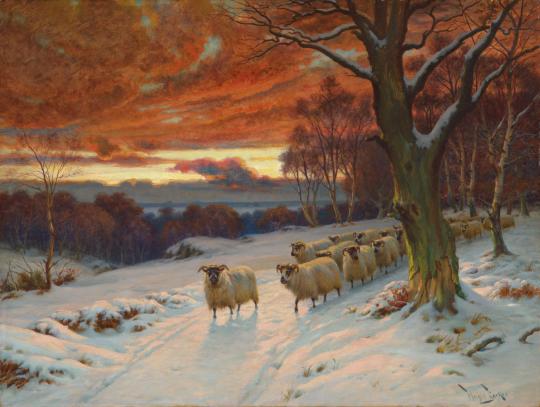
#art#paintings#museum#art pieces#tumblr art#A winter evening#Wright Barker (1864 - 1941)#[2048 x 1543]
40 notes
·
View notes
Text



Beige Silk Ball Gown, ca. 1864, French.
Designed by Emile Pingat.
#met museum#19th century#silk#extant garments#womenswear#dress#france#french#ball gown#evening#1860s#1864#1860s dress#1860s france#beige#ruffles#Émile pingat#maison Pingat#1860s evening#fave
19 notes
·
View notes
Text
June 19, 1864 Battle of Cherbourg France. The CSS Alabama was sunk by the USS Kearsarge. But not without a fight. This shot is still embedded in the side of the Kearsarge today at the Navy Yard. Both the quality of the powder and the coal were thought to have played a part in the Alabama’s loss. The British yacht the Deerhound rescued many in the crew including Captain Semmes. Unfortunately David White a slave from Delaware, who had been freed by Captain Semmes, from a Yankee ship, drowned that day. He is forever immortalized in the sea.
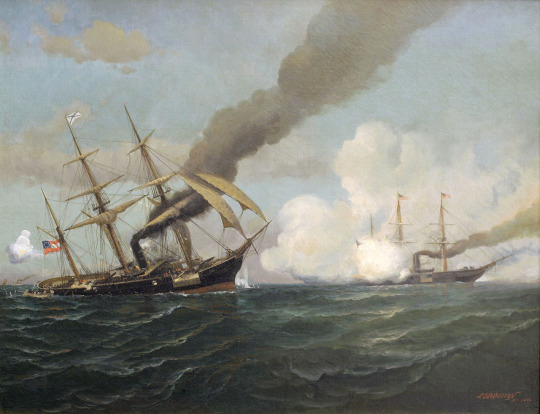
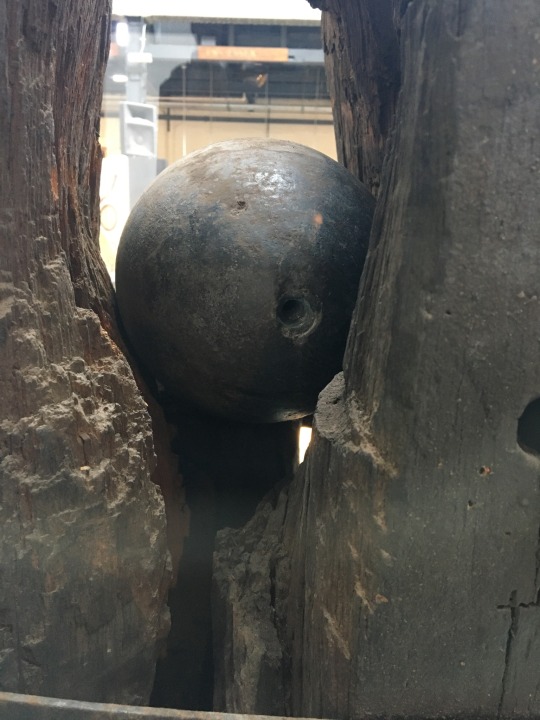

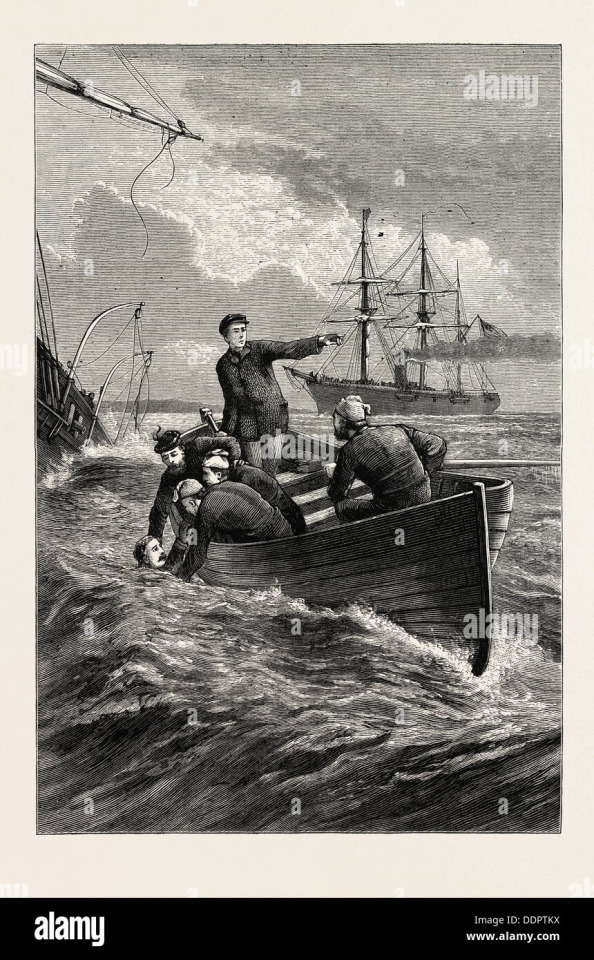
#alabama#civil war#southerners#states rights#confederate#history#gravestones#france#british museum#rebel#black confederate#humanity#confederacy#naval history#us navy#europe#circa 1864#1860s art#1860s#virginia
10 notes
·
View notes
Text
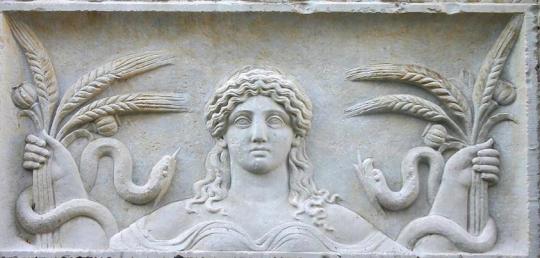
Demeter, goddess of fertility and the harvest, an image likely based off of a Roman original. (Updated description due to deeper research!!) After doing digging this image is not in fact from the temple of Eleusis but is rather a modern version of a (possibly) Roman relief of a similar kind!
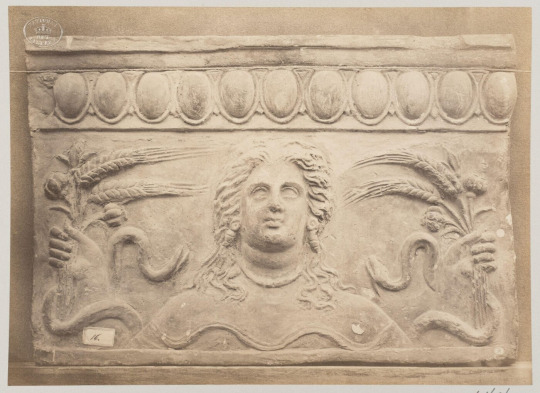
The image which likely served as the basis for the modern one, photograph taken in 1864. Image source Right now it's really unknown where this original relief came from as there's little to no information from the museum listing I found this on, but I will continue to update this as time goes on if I find more info. For anyone else, feel free to update and reblog if you find more info before I do! UPDATE: original image source has been found for the Roman relief, it is located at the Lourve! Source
#demeter#goddess#theoi#theoi worship#greek polytheism#hellenic pagan#hellenic polytheism#archaeology#history#greek mythology#paganblr
4K notes
·
View notes
Text

Title: At the Moulin Rouge, the Dance Artist: Henri de Toulouse-Lautrec (French, 1864-1901) Date: 1890 Genre: genre art Period: Belle Epoque Movement: Post-Impressionism Medium: oil on canvas Location: Philadelphia Museum of Art
#art#art history#Toulouse-Lautrec#Henri de Toulouse-Lautrec#genre painting#genre art#interior#Moulin Rouge#Belle Epoque#Post-Impressionism#France#French art#19th century art#oil on canvas#Philadelphia Museum of Art
439 notes
·
View notes
Text

Day Dress
c. 1862-1864
McCord Stewart Museum
#purple#1860s#historical fashion#fashion history#history of fashion#historical clothing#frostedmagnolias
440 notes
·
View notes
Text

David Roberts (Scottish, 1796-1864) Interior of the Cathedral of St Stephen, Vienna, 1853 Birmingham Museums Trust
546 notes
·
View notes
Text
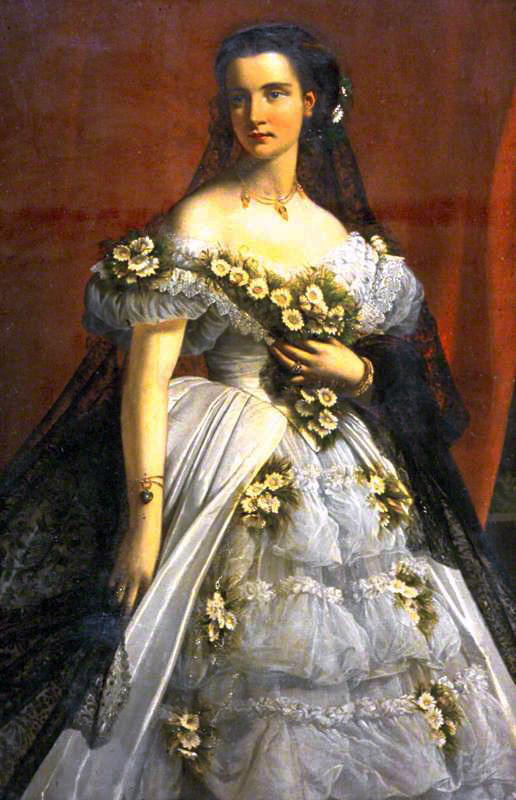
ROSA HARRIET LENOX 1864.
THEODORE JENSEN.
Pontypridd Museum.
#art#artwork#painting#art history#oil on canvas#arthistory#art on canvas#artist#art style#victorian era
351 notes
·
View notes
Text

“The Marble Polisher”, 1882-87 by Toulouse-Lautrec (1864-1901). French painter, printmaker and draughtsman. Princeton University Art Museum. oil on canvas
178 notes
·
View notes
Text
SET SEVEN - ROUND TWO - MATCH ONE
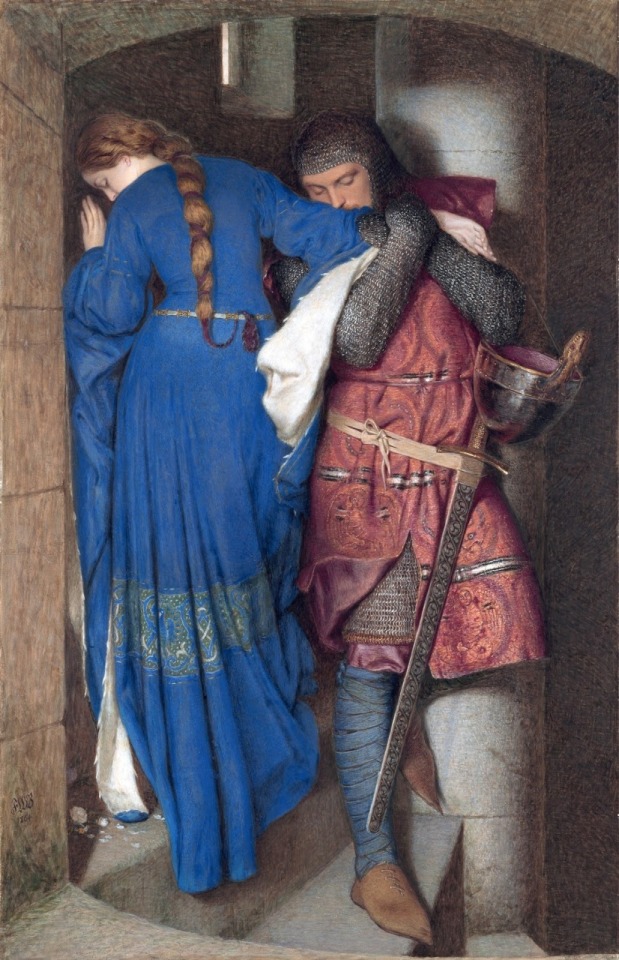

"The Meeting On The Turret Stairs" (1864 - Frederic William Burton) / "Stańczyk" (1862 - Jan Matejko)
THE MEETING ON THE TURRET STAIRS: The fact that it's watercolor… Jesus Christ, Dude. Also I am biased because I run a weekly scheduled post for it (Meeting on the Turret Stairs Tuesday) so I would be letting myself down not reblogging it haha (@dorknewton)
STAŃCZYK: this piece pictures a jester contemplating the political disasters befalling the country, presumably as the court is celebrating in the other rooms. it takes place when the polish nobility was essentially selling out the territories to neighbouring regimes, ignorant of the fact they were issuing a permission for colonisation and oppression of their own people. while it’s context is extremely specific, it remains to feel relevant considering the actions of those in power even in the modern society. i think the climate anxiety has a similar vibe; feeling like you’re isolated in your care while the higher ups are celebrating their own greed. (anonymous)
("The Meeting on the Turret Stairs" is a watercolor painting by Frederic William Burton. It measures 95.5 x 60.8 cm (37.6 x 24 in) and is held by the National Gallery of Ireland.
"Stańczyk" or "Stańczyk during a ball at the court of Queen Bona in the face of the loss of Smolensk" is an oil on canvas painting by Jan Matejko. It measures 120 cm × 88 cm (47 in × 35 in) and is held by the Warsaw National Museum.)
793 notes
·
View notes
Text

I shine only with the light you gave me. — The Moon Will Sing by The Crane Wives
INPRNT
-
This is a recreation of The Meeting on the Turret Stairs (1864) by Frederic William Burton. Credit to the wonderful @soulhollow for giving me the brilliant idea and commissioning this 💚
-
The costume design for Alfred
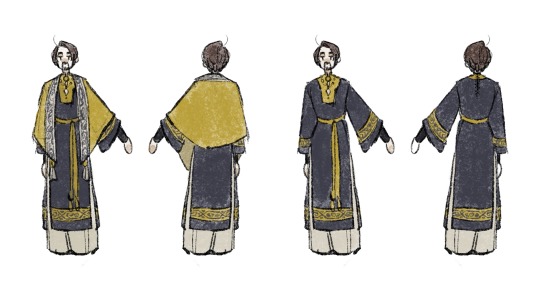
They said they wanted to see Alfred in purple/gold tones, so I self-indulgently designed a costume for Alfred (though again not necessarily trying to be historical accurate)
-
Details for archaeology nerds (So it happens again I guess)
1. The tablet-woven bend
Design is loosely taken from an actual archaeological find from the Taplow Barrow in Buckinghamsire, dating to the early 7th century. The original piece really had the gold threads on it by the way. You can see the modern reconstruction here.

2. Pattern on the tunic
Taken from a part of an arcade illustration in the Royal Bible (Royal 1. E. vi, 4r.) c. 1000-1025 in British Library, London. Added some vine patterns that are quite common to see in insular art for reasons.
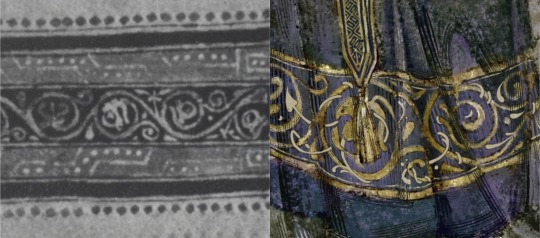
3. Pattern on the shawl
Taken from a part of the stole and the maniple in St. Cuthbert’s coffin, dated to early 10th century, now in Durham Cathedral Museum.
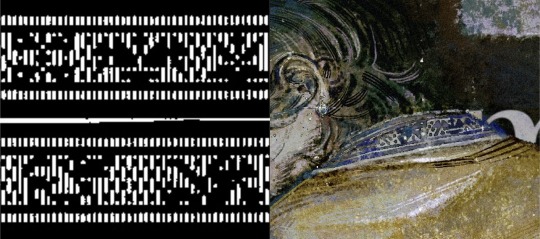
4. Embroidery on Alfred’s sleeves
The pattern is from an illustration in the manuscript of Bede’s Life of St Cuthbert (MS 183, f. 1v) c. 937 in Parker Library, Cambridge, which depicts King Æthelstan showing the book to St Cuthbert himself.
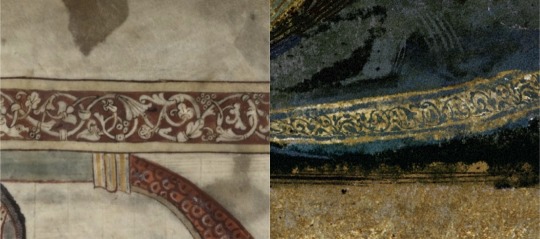
-
The process
Such a pleasure to work on this one! Thank you again for giving me the chance✨
#can i just say i was basically smiling like a weirdo at my ipad the whole time i was working on this#sorry hahahah but I’m so honored to recreate one of my favorite paintings and drawing this somehow gave me life#oh and the flower on the floor is daffodils! saw somewhere that it represented chivalry so… :D#the last kingdom#tlk alfred#alfred x uhtred#uhtred x alfred#king alfred#alfred the great#alhtred#uhtred#hikaru tlk#hikaruchen#AND - if anybody happens to be in desperate need of visual references of Anglo-Saxon clothing or just simply wants to know more about it#check out Dress in Anglo-Saxon England by Gale R. Owen-Crocker#it’s extremely helpful
140 notes
·
View notes
Text



Blue Silk Dress, ca. 1864, Probably French.
Met Museum.
#blue#silk#dress#19th century#1864#1860s#met museum#french#France#extant garments#second empire#1860s france#1860s dress
5 notes
·
View notes
Text











Typography Tuesday
STEPHENSON BLAKE
Today we're showing a new acquisition from one of the giants of British type founding, Specimens of Printing Types from Stephenson, Blake, the Caslon Letter Foundry, Sheffield, published in Sheffield, England by Stephenson Blake & Co. in 1959. Stephenson Blake claims a lineage directly back to William Caxton, the founder of English type and printing in 1476. We think they stand on firmer ground, however, in also claiming descent from William Caslon, the founder of the first truly British typefaces beginning in 1734.
Silversmith and mechanic William Garnett and toolmaker John Stephenson began foundry operations in 1818 with financial support from James Blake. A year later, they acquired the firm of William Caslon III and IV, an offshoot of the Caslon family business. Garnett left the firm in 1829 and the company was renamed Blake & Stephenson in 1830, but Blake died soon after. Stephenson himself died in 1864 and passed the business onto his son Henry. The company was purchased in 1905 Sir Charles Reed and Sons, but the Stephenson name was retained. In 1937, the company purchased H.W. Caslon & Sons, the other branch of the storied Caslon dynasty, securing its right to claim full Caslon heritage.
Stephenson Blake continued to make some type until 2001, but it finally closed its foundry in 2005, with much of its historical stock going to the Type Archive in London. Because of financial issues, the Type Archive also had to close its doors in 2022, and the Stephenson Blake collection was transferred to the Victoria & Albert Museum as the interim custodian.
Shown here are some shaded typefaces and ornaments from the 1959 catalog.
View more Typography Tuesday posts.
#Typography Tuesday#typetuesday#Stephenson Blake#Stephenson Blake & Co.#John Stephenson#James Blake#William Garnett#Sir Charles Reed and Sons#Type Archive#type specimen books#type display book#type specimens#typefaces#shaded type#type ornaments#20th century type
128 notes
·
View notes
Text

The Birth of Venus
I’ve started making posts where I dive into certain artistic depictions of Lady Aphrodite. Many are technically Lady Venus but they’re generally depicted the same. I’ve created one on The Birth of Venus by Botticelli already, and an anonymous person requested The Birth of Venus by Cabanel, so here you go!
Alexandre Cabanel
Alexandre Cabanel was a French painter born on September 28, 1823, in Montpellier, France and died on January 23, 1889 in Paris. He tended to paint historical, classical, and religious subjects in the “academic style”. Cabanel was Napoleon III’s favored painter.
Description of the Painting
The Goddess Venus, depicted as pale with long, orange hair, lays on the waves, looking to be asleep or just waking up. Above her, the Erotes, winged babies, blow on seashells and watch over her.
About the Painting
The birth of Venus was painted in 1863 using oil on canvas. Its dimensions are 150 cm × 250 cm (59 in × 98 in), and it is displayed in the Musée d'Orsay, Paris. Two smaller versions from 1864 and 1875 are on display in the Dahesh Museum of Art and the Metropolitan Museum of Art. When painted, this artwork was immediately purchased by Napoleon III for his personal collection.
#beautyofaphrodite speaks#beautyofaphrodite shrine#helpol#aphrodite#hellenic community#hellenic deities#hellenic gods#hellenic pagan#hellenic polytheism#hellenic polythiest#hellenic worship#aphrodite greek mythology#aphrodite altar#aphrodite goddess of love and beauty#aphrodite worship#aphrodite deity#aphrodite art#lady aphrodite#aphrodite goddess#aphrodite devotion#aphrodite devotee#aphrodite offerings#venus#venus goddess#lady venus#art#the birth of venus#alexandre cabanel#hellenic paganism#hellenic polytheistic
107 notes
·
View notes
Text

HDMS Jylland (1860) is a Danish steam frigate which took part in the Battle of Heligoland on 9 May 1864, and is preserved as a museum ship in the small town of Ebeltoft, located on the Djursland peninsula in Denmark
117 notes
·
View notes